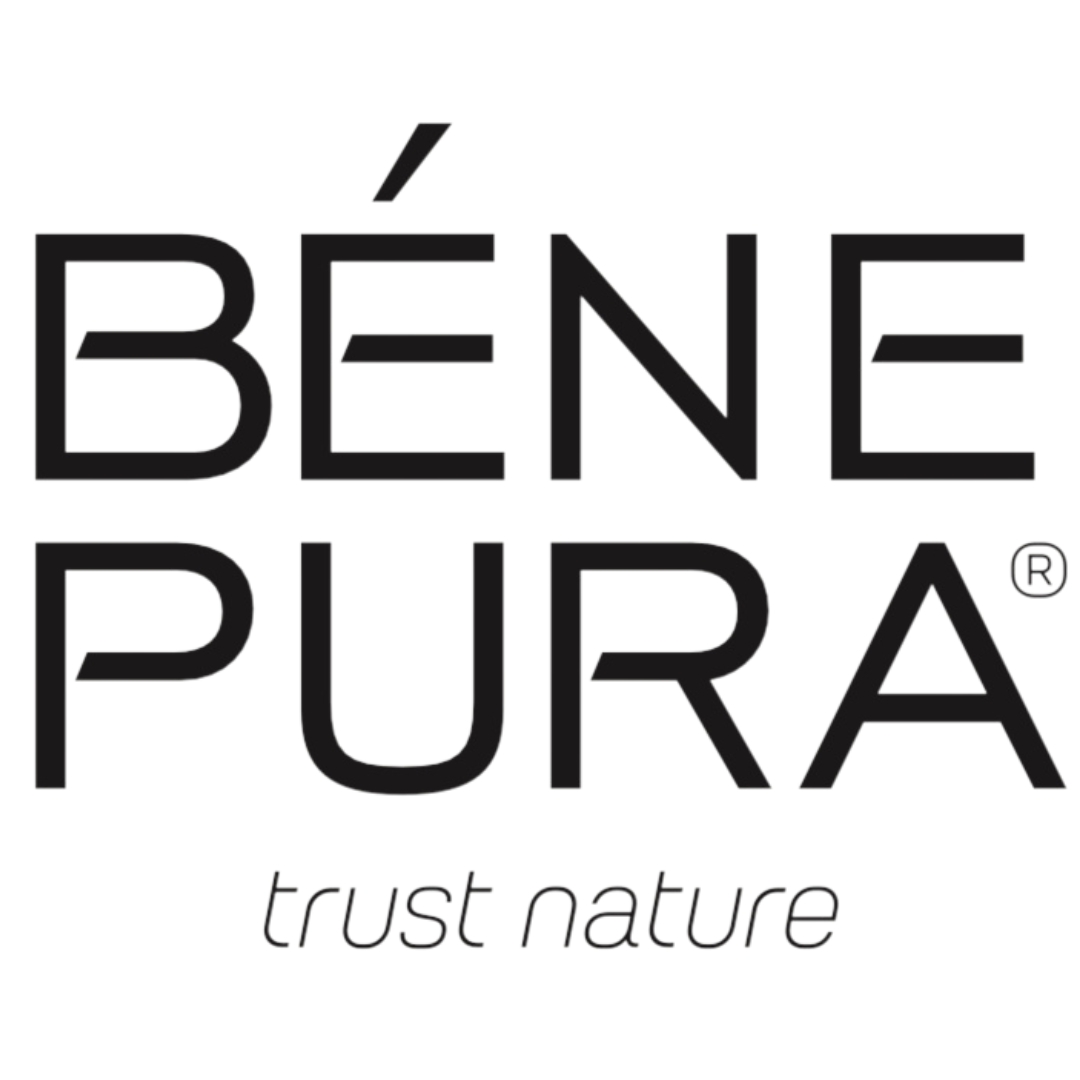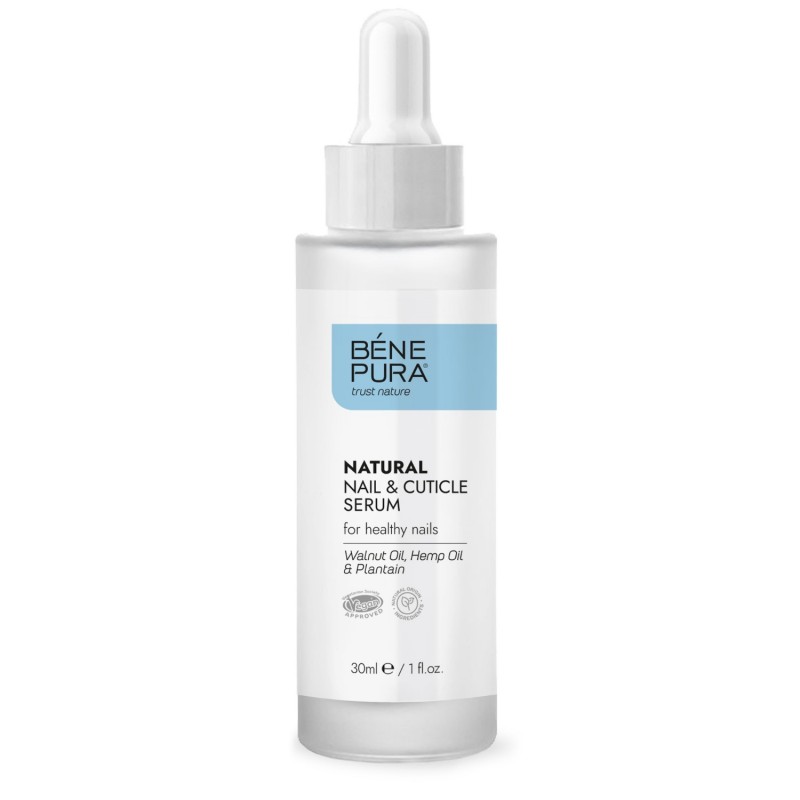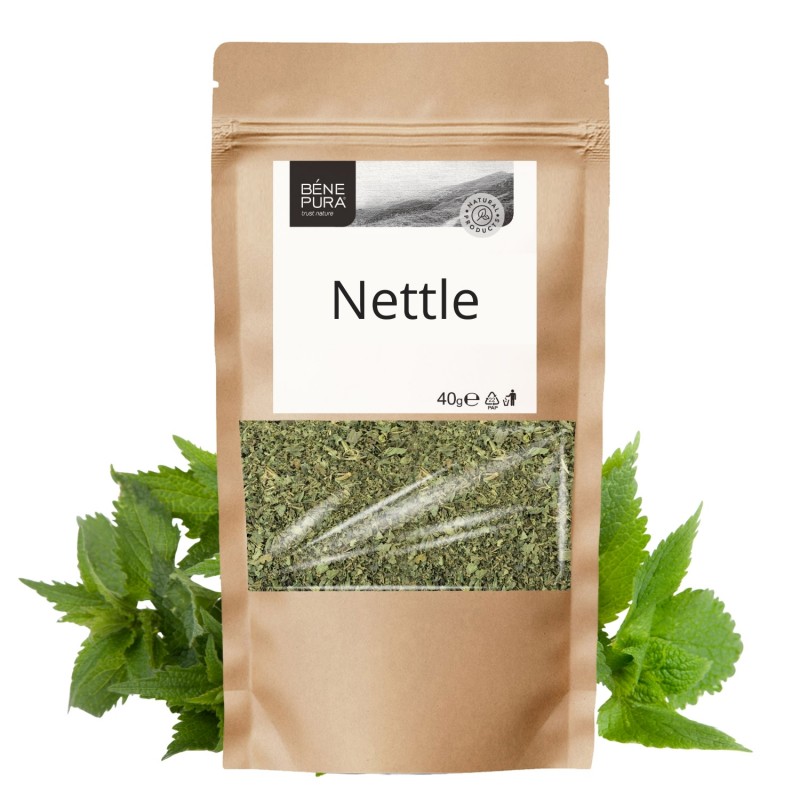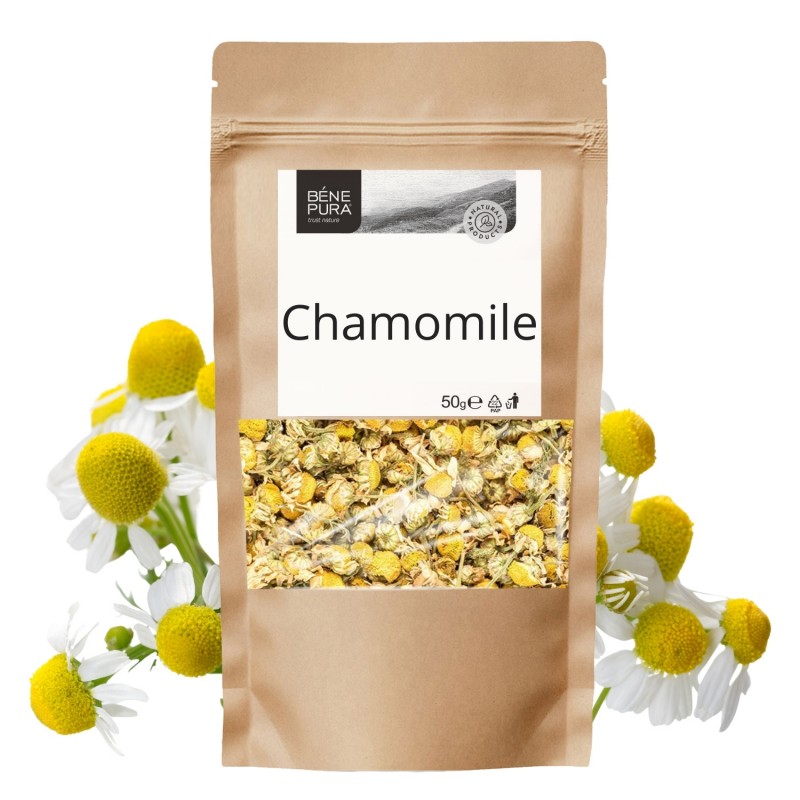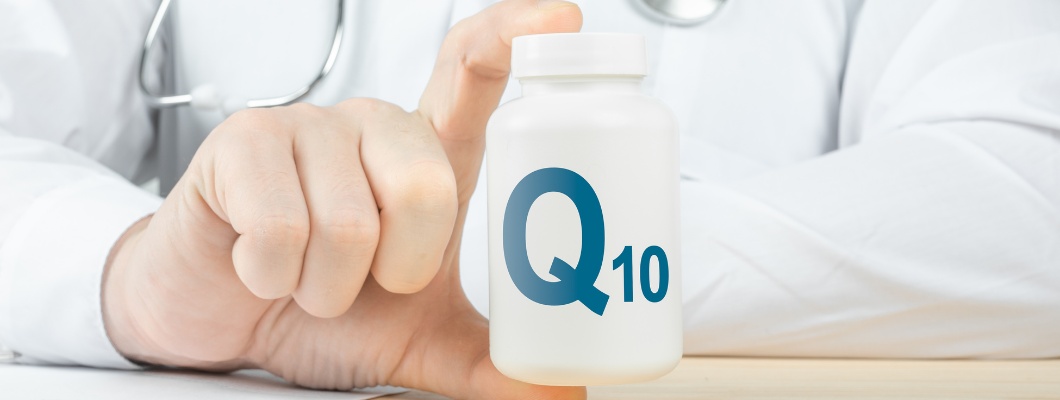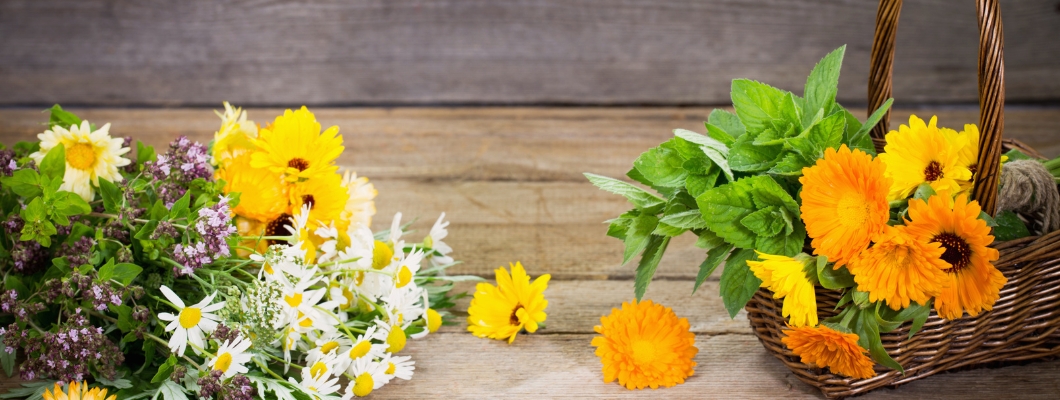Healthy Nails: How to Keep them Strong and Beautiful Every Day
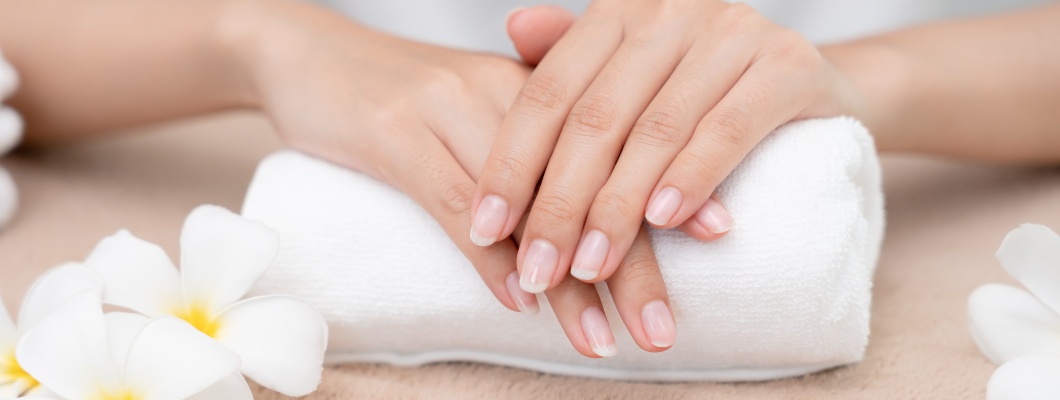
Healthy nails aren't just an aesthetic privilege - they're a mirror of our overall health. They reflect the way we eat, how much we take care of ourselves and even the levels of stress we're exposed to.
Often neglected in everyday life, nails play an important role not only in our appearance but also as an indicator of certain health conditions - brittle, ridged or discolored nails can signal a lack of vitamins, minerals or other problems in the body.
In this article we will look at how to care for them properly, which foods and vitamins are essential for nail health and how to prevent the most common problems associated with them.
Table of Contents
1. Why is it Important to Keep Nails Healthy?
Nails serve more functions than they seem at first glance. They not only contribute to the good appearance of the hands but also serve as protection for the fingertips, where many nerve endings are located.
The condition of our nails is often a signal of our internal health - deformations, changes in color or structure can be early indicators of nutrient deficiencies, hormonal imbalances or even serious illnesses such as anemia, thyroid problems and diabetes.
- Nails that are too soft or brittle can indicate a lack of biotin and iron;
- A yellowish tint can be a sign of a fungal infection or liver problems.
Proper nail care prevents various problems such as infections, painful splits and thinning.
If left untreated, damaged nails can become a source of discomfort and even pain, making our daily activities difficult.
2. What Factors Affect Nail Strength?
Healthy nails depend on multiple factors that influence their structure, strength and resistance to external influences. Understanding these factors and implementing proper care can significantly improve the condition of your nails.
1. Genetic predispositions
Genetics play a key role in nail strength. Some people are born with stronger, harder and faster-growing nails, while others are prone to brittleness and splitting.
If you have a family history of weak nails you may need to take extra care to strengthen them. However, even if genetics aren't on your side, proper nutrition and care can significantly improve the condition of your nails.
2. External influences and environment
Daily contact with various external factors can affect the health of your nails.
Among the main external influences are:
- Temperature changes - sudden changes in cold and heat can lead to dehydration of the nails, making them more brittle;
- Moisture and dryness - prolonged contact with water (for example, when washing dishes or swimming) can weaken the nails while dry air can lead to cracking and splitting;
- Exposure to chemicals - household cleaners, acetone and other solvents can dry out and thin the nail plate.
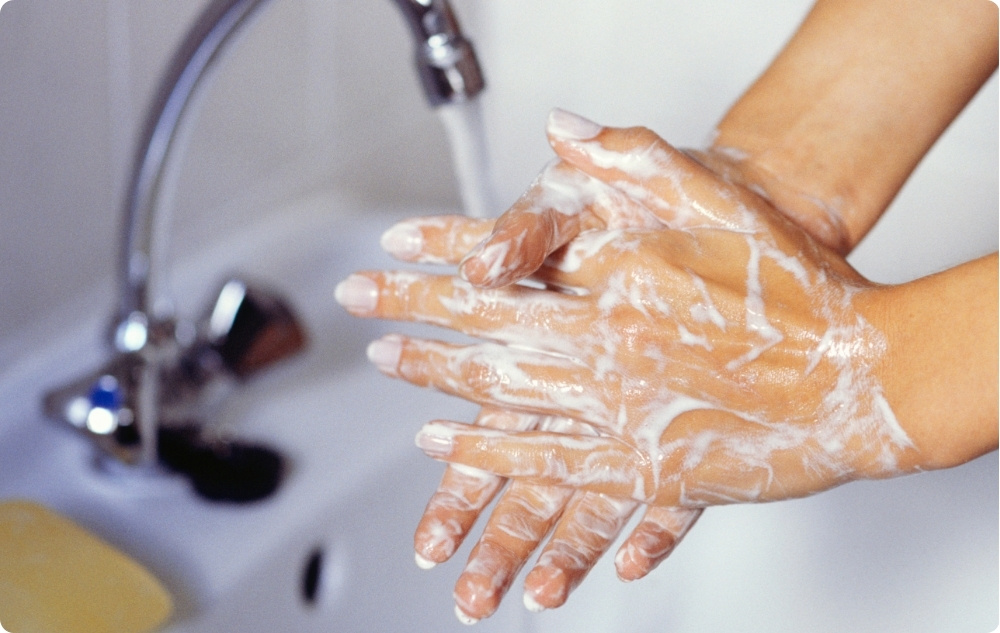
3. Hormonal balance and health status
Hormones affect nail growth and strength. Changes in hormonal balance such as during pregnancy, menopause or thyroid disease can lead to changes in nail structure.
Women often notice that their nails grow faster during pregnancy, but after giving birth they can become more brittle due to hormonal fluctuations.
4. Blood circulation
Good blood circulation is important for the proper supply of nutrients and oxygen to the nails.
Poor blood circulation caused by a sedentary lifestyle or cold extremities can lead to slower nail growth and loss of nail strength.
Regular physical activity and massaging your fingers can improve circulation and contribute to healthy nails.
5. Quality cosmetic products
The choice of cosmetic products also plays a role in the condition of your nails. Low-quality nail polishes containing harsh chemicals such as formaldehyde and toluene can lead to yellowing and thinning of your nails.
It is recommended to use products with nourishing ingredients such as keratin, panthenol and vitamin E.
3. What Role Does Nutrition Play?
Nutrition is one of the most important factors for healthy and strong nails. Nails are made primarily of keratin, a type of protein that is synthesized in the body. A lack of essential nutrients can lead to thinning, brittleness and slowed growth.
To keep your nails healthy it is important to include balanced amounts of protein, vitamins, minerals and healthy fats in your diet.
1. Protein - the main building block
Nails are made of protein so consuming enough protein is essential.
Insufficient protein intake can lead to weak and easily brittle nails.
Foods to include in your menu:
- Lean meats (chicken, turkey, beef);
- Fish (salmon, tuna);
- Eggs;
- Legumes (lentils, chickpeas);
- Nuts and seeds.
2. Vitamins for growth and strengthening
Vitamins play a key role in maintaining healthy nails.
Some of the most important vitamins are:
- Vitamin A - Promotes nail growth and prevents them from drying out. Found in carrots, spinach, red peppers;
- Vitamin B7 (Biotin) - One of the most important vitamins for healthy nails. Biotin strengthens the nail plate and stimulates growth. Found in eggs, nuts, bananas, avocados;
- Vitamin C - Promotes the production of collagen, which strengthens nails. Found in citrus fruits, strawberries, broccoli;
- Vitamin D - Improves the absorption of calcium, which is important for healthy nails. Found in fish, eggs and dairy products;
- Vitamin E - Moisturizes and protects nails from breaking. Found in almonds, sunflower seeds and avocados.
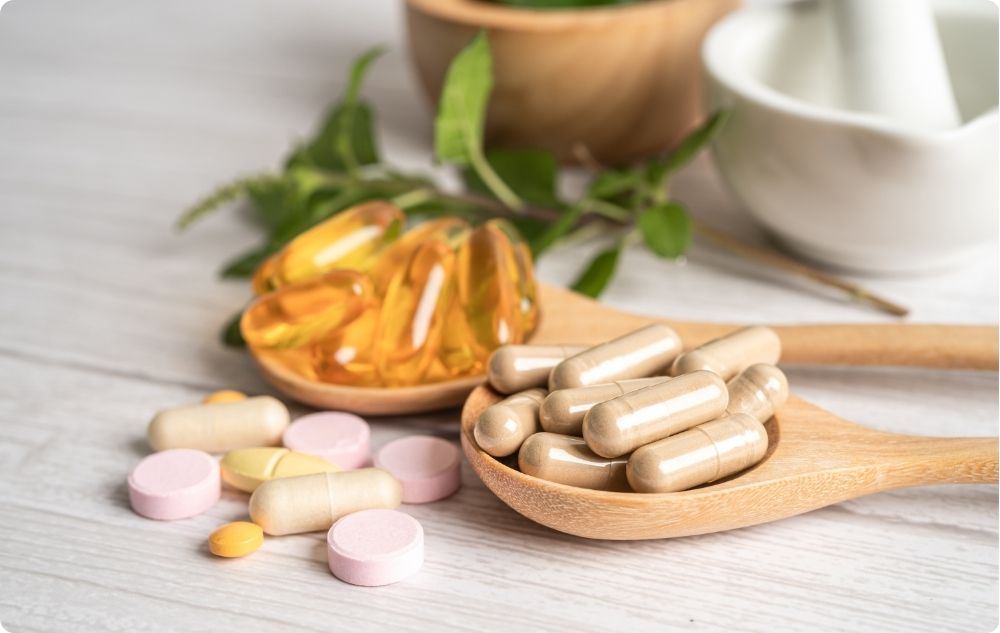
3. Minerals for healthy and resistant nails
Minerals are just as important as vitamins.
A lack of certain minerals can lead to problems such as weak, split or slow-growing nails.
The main minerals include:
- Iron - Iron deficiency can lead to thin and brittle nails. Eat red meat, spinach, lentils and pumpkin seeds;
- Zinc - Promotes cell growth and regeneration of the nail plate. Found in meat, nuts, seeds, shellfish;
- Calcium - Promotes nail strength. The main sources are dairy products, broccoli and almonds;
- Magnesium - Improves nail structure and prevents peeling. Found in avocados, nuts, dark green leafy vegetables.
4. Healthy fats for elasticity and hydration
Healthy fats keep nails hydrated and flexible, preventing them from drying out and splitting.
Useful sources of fat include:
- Avocados;
- Olive and coconut oil;
- Nuts and seeds;
- Salmon and other fatty fish.
4. Water - the Best Friend of Nails
Hydration plays a key role in maintaining healthy and strong nails. Insufficient water intake can lead to dry, brittle and easily split nails.
Water helps transport nutrients to the nail plate and maintains its flexibility and strength.
1. How does water affect nails?
The nail plate contains about 10-15% water which gives it the necessary elasticity. When the body does not receive enough fluids nails become dry and prone to cracking.
It is important to maintain proper water balance to avoid:
- Drying and peeling of the nails;
- Reduced strength and increased brittleness;
- Slow growth;
- Increased susceptibility to infections.
2. How much water is needed for healthy nails?

It is recommended to drink between 2 and 3 liters of water per day with the exact intake depending on individual needs, physical activity and climatic conditions.
If you often experience dry skin and lips it may be a sign that your nails are also suffering from dehydration.
3. How does external hydration help nails?
In addition to internal water intake, external hydration is also important.
Here are a few ways to keep your nails well hydrated from the outside:
- Moisturizing oils - regular rubbing of Coconut, Almond or Argan oil nourishes and moisturizes nails;
- Moisturizing hand and nail creams - use products containing glycerin, vitamin E and Aloe vera;
- Warm oil baths - soaking nails in olive or Jojoba oil for 10-15 minutes once a week helps with their elasticity.
4. How to avoid moisture loss?
Water is important but excessive contact with it, especially with soaps and harsh cleansers, can damage the nails.
To prevent excessive drying:
- Use gloves when doing housework - dishwashing detergents and cleaning products remove moisture from the nails;
- Avoid excessively hot water - frequent washing of hands with hot water can lead to loss of natural nail protection;
- Limit the use of acetone - frequent nail polish removal with acetone dries out nails and cuticles.
Maintaining proper hydration is a key step towards healthy, strong and beautiful nails. By combining good water intake with external care you will provide your nails with the elasticity and protection they need.
5. Homemade Recipes for Healthy Nails
Nail care doesn't always require expensive cosmetic products. At home, you can use natural ingredients that nourish, strengthen and hydrate your nails.
Homemade recipes are easy to prepare, safe and effective:
Herbal decoction for healthy nails
Herbal decoctions are a natural way to strengthen the nails and improve their structure.
Required ingredients:
How to make it:
- Pour boiling water over the herbs and let steep for 10-15 minutes;
- Strain the decoction and let it cool to a comfortable temperature;
- Soak your fingers for 10 minutes;
- Use twice a week for healthier nails.
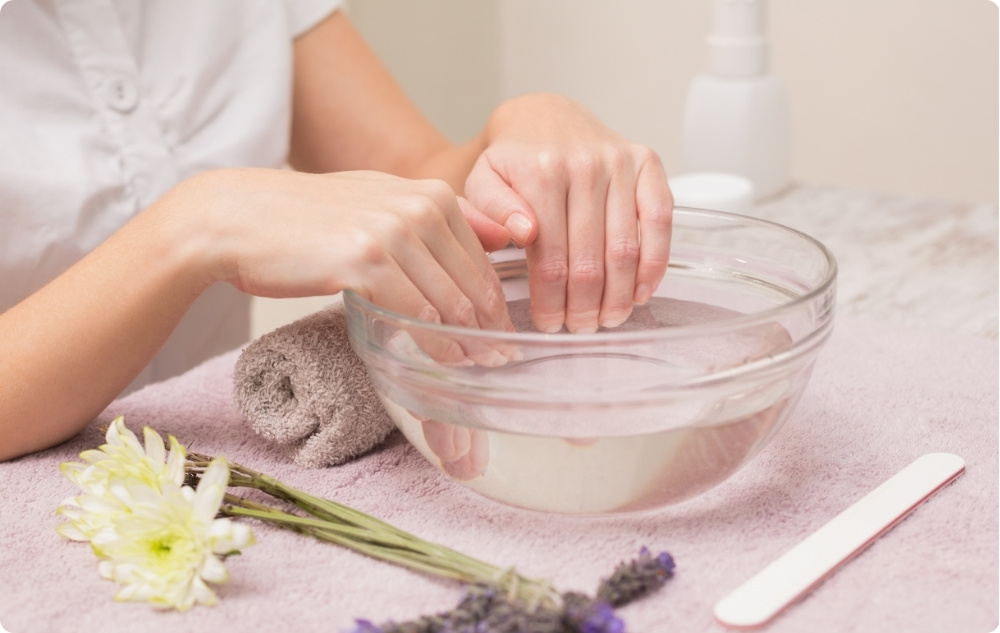
Oil therapies to strengthen nails
Natural oils are rich in vitamins and fatty acids that nourish the nails and make them healthier.
Required ingredients:
- 1 tsp Olive oil;
- 1 tsp Jojoba oil;
- 3-4 drops Lemon essential oil.
How to make it:
- Mix all ingredients in a small bowl;
- Rub the mixture into your nails and cuticles with light massage movements;
- Leave on for 20-30 minutes, then rinse with lukewarm water;
- Repeat the procedure 2-3 times a week.
Lemon and baking soda bath for lightening and strengthening
Lemon juice and baking soda are great for removing stains from nails and strengthening their structure.
Required ingredients:
- Juice of half a lemon;
- 1 tsp baking soda;
- 200 ml warm water.
How to make it:
- Pour the lemon juice into a bowl of warm water;
- Add the baking soda and stir until dissolved;
- Soak your fingertips in the solution for 10 minutes;
- Rinse and apply a moisturizing oil or cream;
- Use once a week for lightening and strengthening.
Moisturizing mask with Honey and Aloe vera
Honey and Aloe Vera have strong hydrating and restorative properties that help with dry and brittle nails.
Required ingredients:
- 1 tsp. natural Honey;
- 1 tsp. Aloe vera gel.
How to make it:
- Mix Honey and Aloe vera gel in a small bowl;
- Apply a thin layer to nails and cuticles;
- Leave on for 15-20 minutes, then rinse with lukewarm water;
- Do this once a week for optimal results.
Useful habits when using homemade recipes
To achieve maximum effect from home care, follow a few basic principles:
✅ Be consistent - homemade recipes give the best results with regular use;
✅ Combine different methods - masks, baths and oil therapies can be alternated for more comprehensive care;
✅ Use natural ingredients - always choose high-quality products to avoid side effects;
✅ Apply moisturizer after procedures - hydration is key to maintaining healthy nails.
6. Conclusion
Healthy nails require constant care, a balanced diet and sufficient hydration. The key to strong and resilient nails is a regular supply of important vitamins and minerals, as well as avoiding harmful habits such as excessive use of chemicals and acetone.
Home care with natural oils, herbal decoctions and hydrating masks can significantly improve the condition of your nails.
For even better results combine a proper diet, good hydration and regular nail care routines. With proper care you will enjoy healthy, beautiful and durable nails every day.
SOURCES:
1. MayoClinic: Fingernails: Do's and don'ts for healthy nails (15.04.2025)
